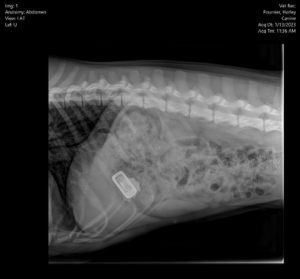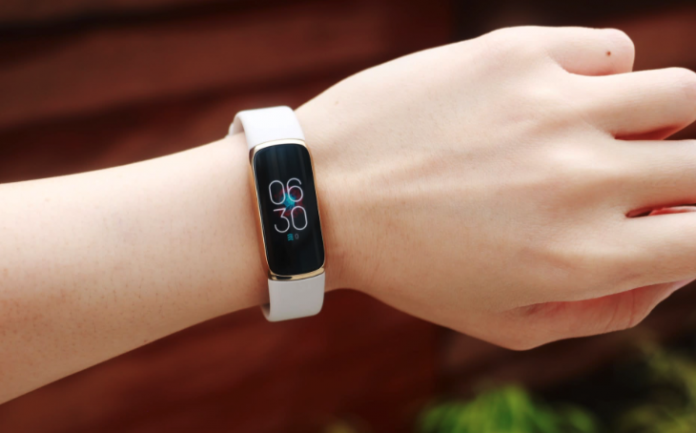When Marie Fournier of Caseville, Michigan, noticed that her Fitbit was missing after charging it on her bedroom dresser, she thought it must have been lost. But after a few days, she opened her fitness app and noticed that the tracker had logged activity since its disappearance.
“I opened the app and confirmed it must be around because someone was using it. It was hilarious. It had been tracking movement, and it was like I rode my bicycle outside for 20 minutes,” Fournier said in a Pet Poison Helpline release.
Suspecting that one of her two dogs, Harley and Halley, had taken the Fitbit, she put each one in the car and drove around the block. The app registered movement with Harley, so Fournier knew she had her culprit.
“When I realized it must be one of the dogs who took the Fitbit, I began to suspect that perhaps Halley had eaten it because she was acting strangely,” Fournier said.
“I put Halley in the car with me and drove around the block, but the app wasn’t tracking. Then I did the same thing with Harley and found out she was the real culprit. Halley’s strange behavior must have been empathy for her sister,” the dog mom added.

Fournier was worried because inside the Fitbit was a lithium polymer battery, which can generate an electrical current that can cause tissue damage. She contacted the Pet Poison Helpline, which recommended she take her dog to the veterinarian immediately.
At the Caseville Small Animal Clinic, the vet gave Harley a radiograph and the Fitbit showed up on the scan. To the surprise of the vet, there was also a rock the size of a prune in the dog’s lower intestine. The vet tried to induce vomiting, but nothing came up. Surgery was the only option to remove the Fitbit and rock.

After the surgery, Harley recovered well and the Fitbit was still functioning. Fournier just needed to replace the device’s band.
The Pet Poison Helpline states “Depending on the specific type of battery, whether it was punctured, and how much was ingested, treatment can vary from at-home monitoring, starting medication to provide gastrointestinal protection, or potentially surgery. Lithium batteries, especially round, button-type batteries, tend to become lodged in the esophagus, creating even more concerns.”




